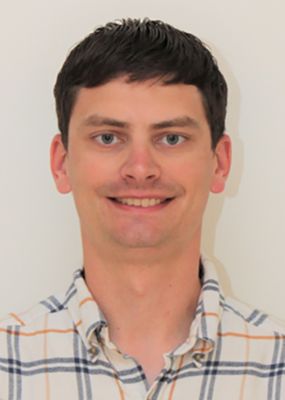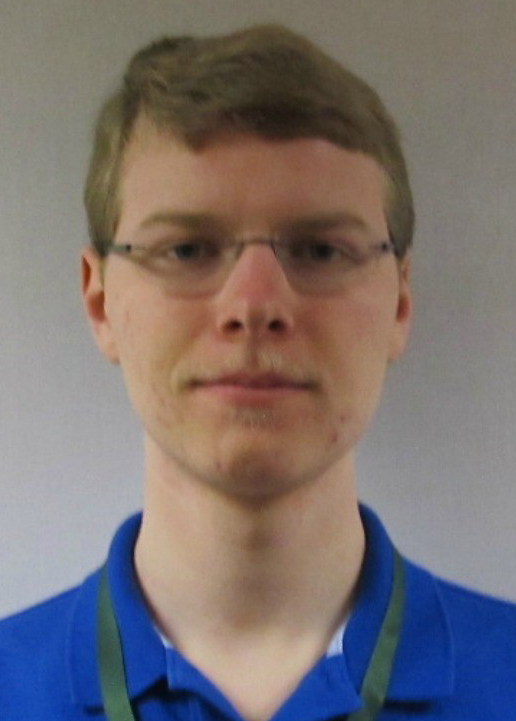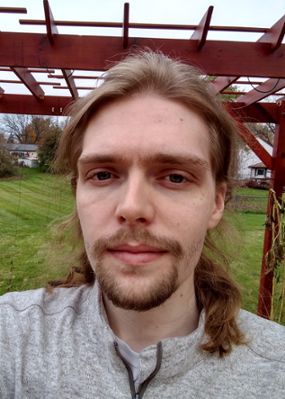Three NatSci graduate students chosen to study at national laboratories
The Department of Energy’s (DOE’s) Office of Science has announced its selection of graduate students for the Office of Science Graduate Student Research (SCGSR) program’s 2021 Solicitation 1 cycle, three of whom are Michigan State University College of Natural Science (NatSci) doctoral students: Caleb Richard Hicks and Gabriel Given in the Department of Physics and Astronomy, and Scott Essenmacher in the Department of Chemistry.
The DOE SC provides the scientific foundation for solutions to some of our nation’s most complex challenges. Through training and access to the state-of-the-art facilities and resources at DOE national laboratories, SCGSR prepares graduate students to enter jobs of critical importance to the DOE mission and secures the United States’ national position at the forefront of discovery and innovation.
SCGSR awardees work on research projects of significant importance to the Office of Science mission and that address societal challenges at a national and international scale. Projects cover a range of topics, from the energy sciences to advanced accelerator and detector research and enabling R&D for fusion energy, microelectronics, machine learning, quantum information science and data science.
All three MSU students will be conducting their research projects at Los Alamos National Laboratory (LANL).

Scott Essenmacher plans to develop a procedure for producing a highly pure vanadium-48 target for direct nuclear reaction cross section measurement studies. Although these types of measurements have been done for many stable isotopes and a few radioisotopes, they have not been done for vanadium-48.
“Los Alamos National Laboratory has facilities, unique equipment, and staff with expertise in manufacturing targets for nuclear science experiments that will be beneficial to utilize for my graduate research project,” said Essenmacher, whose area if study is radiochemistry for nuclear security applications. “It is exciting to have the opportunity to do that as well as to obtain training on working with hot cells, which are shielded enclosures that allow for significant quantities of radioactive material to be safely handled.”
“We are thrilled that chemistry Ph.D. student Scott Essenmacher received a 2021 SCGSR award from the Department of Energy,” said Tim Warren, Rosenberg Professor and chairperson, Department of Chemistry. “Furthering his research with Professor Gregory Severin, this award will allow Scott to spend time at Los Alamos National Laboratory to develop methods to prepare highly pure samples of vanadium-48, a radioisotope of vanadium with a half-life of 16 days. Nuclear reactions to be examined at FRIB using these examples will provide new insights into nuclear properties and even help predict events in supernovae, some of the universe’s nuclear reactors.”

Noting that inside neutron stars, the neutron matter becomes a superfluid and that the mechanisms for superfluidity vary depending on the density of the neutron matter, Gabriel Given plans to investigate whether different forms of superfluidity can coexist in regions of intermediate density using computer simulations.
“At LANL, I will be able to closely work with experts in the kind of simulations I am using,” said Given, whose area of study is nuclear physics.
Caleb Richard Hicks plans to investigate whether matter can form both the simplest superfluid, the s-wave superfluid, which forms in the outer-core of neutron stars, and the p-wave superfluid, which scientists suspect forms in the outer core of neutron stars, at the same time using a simulation based on the fundamental laws of physics.

“This award is an opportunity for me to experience and contribute to research at a National Lab,” said Hicks, whose area of study is nuclear data and nuclear-theory computing in nuclear physics. “I still don't know what I want to do post-graduation, so this will be a good way for me to determine if research at a National Lab is something I want to pursue in the future.”
“We are proud of our graduate students, Gabriel Given and Caleb Richard Hicks, who were selected for the DOE’s SCGSR program,” said Stephen Zepf, professor and chair, Department of Physics and Astronomy. “Their selection is a testament to their hard work and to the excellent graduate students in our program. This award also shows the strong connections between our graduate programs and societal challenges addressed by national science initiatives and at national laboratories.”
Awardees are selected from a diverse pool of graduate applicants from institutions around the country, based on merit peer review by external scientific experts. Since 2014, the SCGSR program has provided more than 765 U.S. graduate awardees from 153 universities with supplemental funds to conduct part of their graduate research at a host DOE laboratory in collaboration with a DOE laboratory scientist.
“I extend heartfelt congratulations to the excellent students that have been selected for this prestigious research award,” said Richard Schwartz, associate dean for graduate studies, and professor, Department of Microbiology and Molecular Genetics, College of Natural Science. “This highly competitive award not only honors them but provides an important extension to their Ph.D. training. It is also testimony to the quality of their respective graduate programs and the caliber of students that come to MSU for their Ph.D.”
Banner image: College of Natural Science building. Credit: Harley Seeley